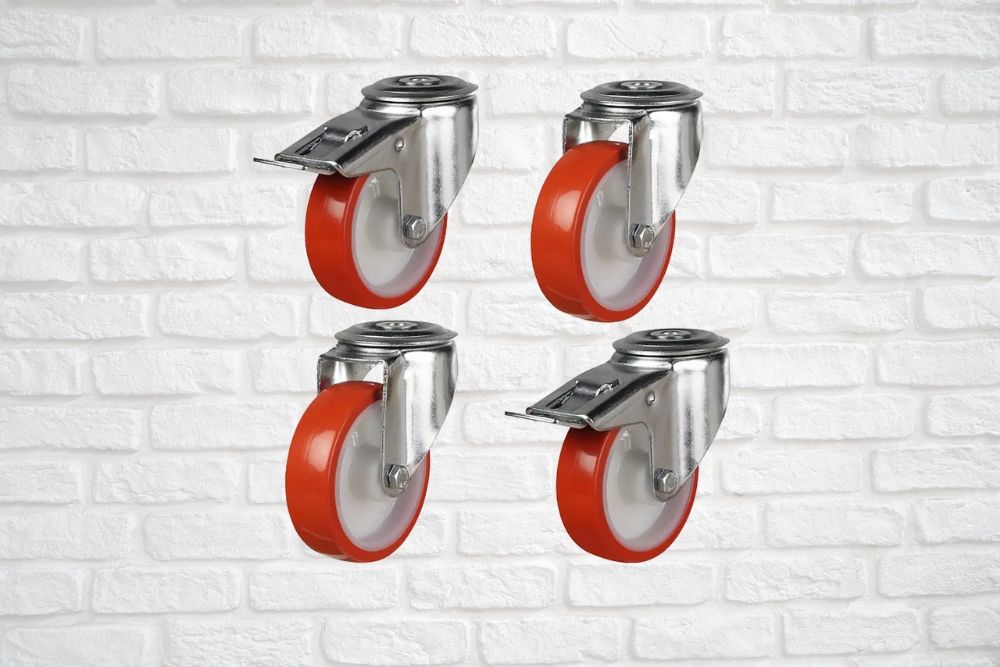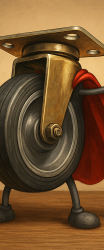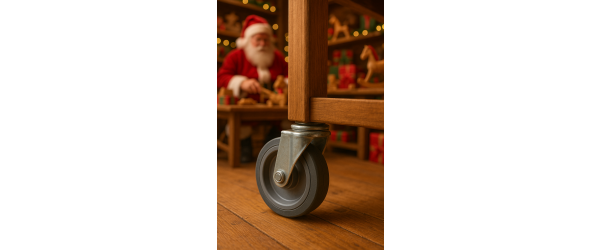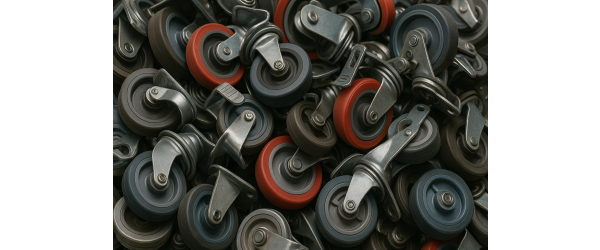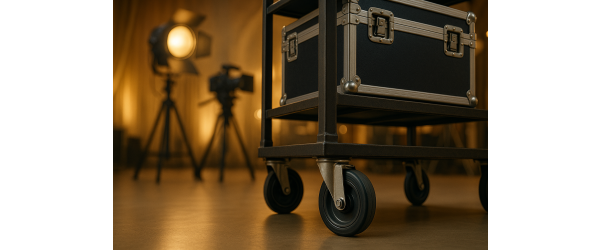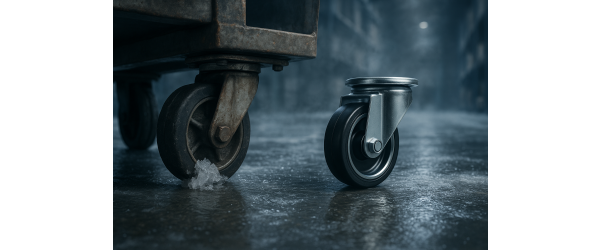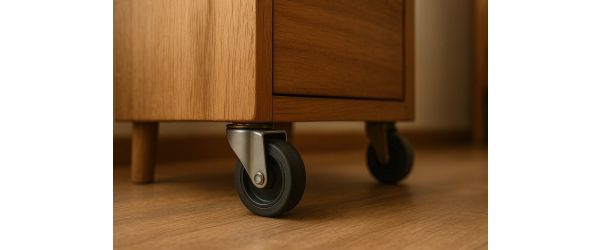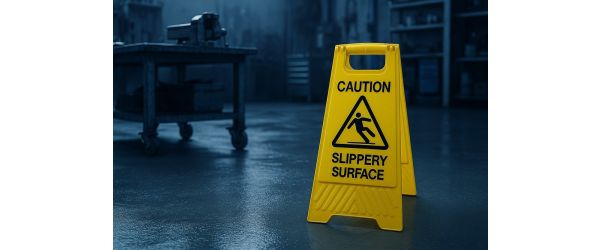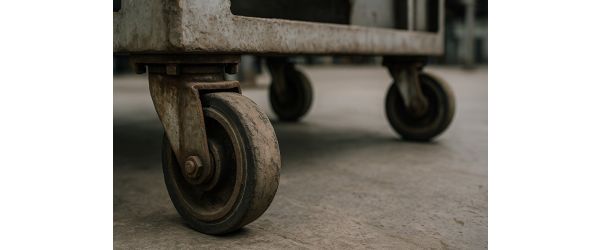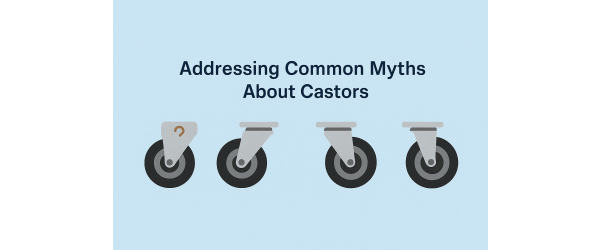Choosing the right castor wheels isn’t just about mobility—it’s also essential for protecting your floors. Whether you're fitting castors to office chairs, trolleys, or furniture, the wrong wheel type can lead to unsightly scratches, scuffs, and even long-term damage. Thankfully, floor-safe castor wheels are specifically designed to protect different floor types while delivering smooth and efficient movement.
In this guide, we’ll help you understand how to prevent floor damage by selecting the right castors for your environment.
1. The Risk of Floor Damage from Castor Wheels
Incorrect or poor-quality castors can cause:
- Scratches on hardwood and laminate floors
- Scuff marks on vinyl or tile
- Indentations in soft flooring, like cork or linoleum
- Carpet wear from grinding or dragging
Heavy furniture or equipment moved across unsuitable wheels can accelerate this damage. Investing in floor-safe castor wheels is a simple and cost-effective way to avoid expensive floor repairs.
2. What Are Floor-Safe Castor Wheels?
Floor-safe castor wheels are designed with materials and construction that minimise the risk of marking or damaging flooring. They are typically made from softer, non-marking materials like rubber, polyurethane, or thermoplastic elastomer (TPE).
Key Features of Floor-Safe Castors:
- Non-marking materials that don’t scratch or scuff
- Smooth rolling action to prevent dragging
- Shock-absorbing properties to protect both the load and the floor
- Quiet operation, ideal for shared or sensitive environments
3. Choosing the Right Floor-Safe Castor for Your Surface
Hardwood, Laminate and Vinyl Floors:
- Choose soft rubber or polyurethane
castors to prevent scratching and dents - Avoid hard plastic or nylon wheels, which can mark surfaces easily
- Opt for wider wheels for better weight distribution
Tip:
Use twin-wheel designs or larger wheel diameters to further reduce pressure on delicate floors.
Tiles and Stone Flooring:
- Polyurethane and rubber castors work well on these hard but potentially brittle surfaces
- Castors with a slight tread or grip can help prevent slipping
- Look for castors with shock absorption to protect both the floor and contents from jolts
Carpeted Floors:
- While carpet is more forgiving, castors still matter
- Use hard nylon castors for low-pile carpet to reduce rolling resistance
- For thick carpet, opt for larger-diameter castors that won’t sink into the pile
4. Additional Ways to Protect Your Flooring
Use Chair Mats or Floor Protectors.
For high-traffic areas or particularly delicate floors, a chair mat or castor tray can add an extra layer of protection beneath the wheels.
Regular Maintenance:
Even floor-safe castors can collect debris that causes scratches. Clean castor wheels regularly to remove grit and hair that could affect performance and mark floors.
Check Load Ratings:
Overloaded castors can dig into floors and cause pressure marks. Always ensure your castor wheels are rated to carry the full weight of the item they’re supporting.
5. Ideal Applications for Floor-Safe Castor Wheels
- Office chairs used on hardwood or laminate
- Retail displays and fixtures in high-visibility areas
- Hospital or medical equipment requiring quiet, floor-friendly movement
- Hotel furniture and housekeeping trolleys need smooth, mark-free rolling
Conclusion
Floor damage caused by the wrong castors is common, but easily avoidable. By selecting floor-safe castor wheels designed for your specific flooring type, you’ll extend the life of your surfaces, improve mobility, and create a safer, more professional environment.
Explore our full range of floor-safe castor wheels at Castors Online
and find the perfect solution for your home, office, or commercial space.
